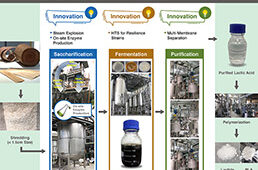Transistors made of plastic can be controlled with great precision, according to an article in the journal PNAS by Loïg Kergoat, a researcher at Linköping University in Sweden.
The
Organic Electronics Research Group at Linköping University (LiU) in
Sweden, led by Professor Magnus Berggren, attracted great attention a
year ago when Lars Herlogsson showed in his doctoral thesis that it was
possible to construct fully functional field-effect transistors out of
plastic.
Kergoat,
a post-doc in the same research group, now shows that transistors made
of plastic can be controlled with great precision.
If
a transistor is to be usable in a logic circuit, the threshold voltage,
where the transistor switches from off to on, or zero to one, must be
well defined. Kergoat has now shown that by changing the material on the
gate electrode, the electrode in a transistor that governs the current
through both the other electrodes, the threshold voltage can also
gradually be shifted.
“Transistors
built from organic electronics need to be able to be controlled with
weak voltages, preferably as close to zero as possible,” Kergoat says.
By changing the electrode material, for example from gold to calcium, the threshold voltage is reduced by as much as 0.9V.
“This
means that we can control exactly one of the most important properties
of our transistors, which is of great significance now that we’re
building circuits of various types,” Berggren says.
Research
was conducted in collaboration between the Organic Electronics Group in
the Linköping University Department of Science and Technology and a
research group at the Université Paris Diderot, Paris 7, where Berggren
was a guest professor between 2009 and 2011.
Tuning the threshold voltage in electrolyte-gated organic field-effect transistors
Source: Linköping University




